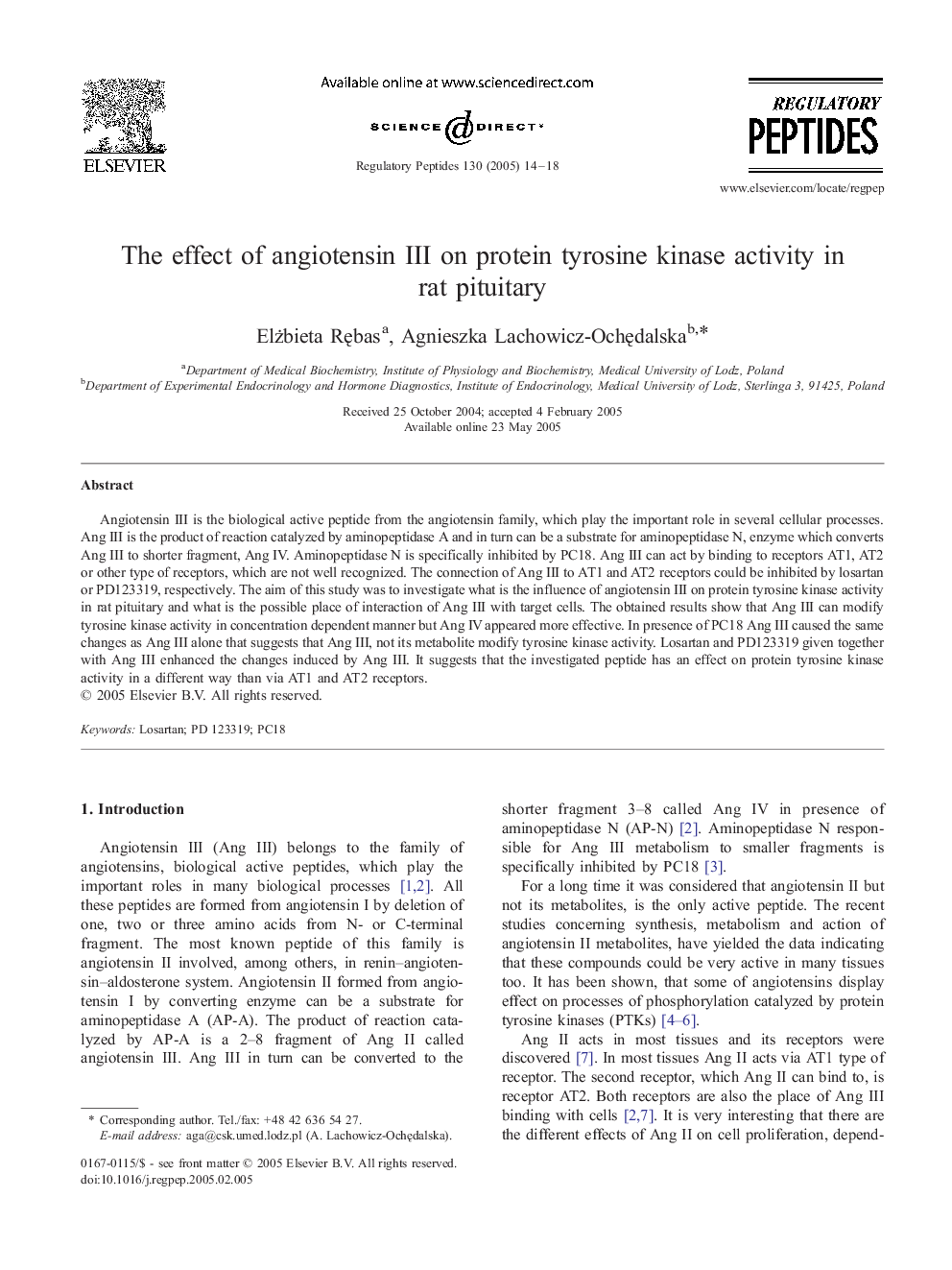| Article ID | Journal | Published Year | Pages | File Type |
|---|---|---|---|---|
| 9894386 | Regulatory Peptides | 2005 | 5 Pages |
Abstract
Angiotensin III is the biological active peptide from the angiotensin family, which play the important role in several cellular processes. Ang III is the product of reaction catalyzed by aminopeptidase A and in turn can be a substrate for aminopeptidase N, enzyme which converts Ang III to shorter fragment, Ang IV. Aminopeptidase N is specifically inhibited by PC18. Ang III can act by binding to receptors AT1, AT2 or other type of receptors, which are not well recognized. The connection of Ang III to AT1 and AT2 receptors could be inhibited by losartan or PD123319, respectively. The aim of this study was to investigate what is the influence of angiotensin III on protein tyrosine kinase activity in rat pituitary and what is the possible place of interaction of Ang III with target cells. The obtained results show that Ang III can modify tyrosine kinase activity in concentration dependent manner but Ang IV appeared more effective. In presence of PC18 Ang III caused the same changes as Ang III alone that suggests that Ang III, not its metabolite modify tyrosine kinase activity. Losartan and PD123319 given together with Ang III enhanced the changes induced by Ang III. It suggests that the investigated peptide has an effect on protein tyrosine kinase activity in a different way than via AT1 and AT2 receptors.
Related Topics
Life Sciences
Biochemistry, Genetics and Molecular Biology
Biochemistry
Authors
Elżbieta RÄbas, Agnieszka Lachowicz-OchÄdalska,
